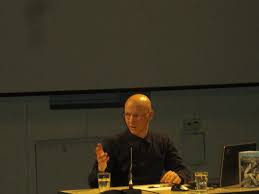Gregor Moder: To Be or Not to Be – Lubitsch, Shakespeare and the Theatricality of Power
Abstract
War in Eastern Europe! Ernst Lubitsch’s classic comedy To Be or Not to Be (1942) was filmed during World War II and takes place in the early period of the Nazi occupation of Poland. Even though the times were dismal and absolutely serious, the film focuses on the seemingly ephemeral story of a theatre group, on actors, and on the metaphysical question of what makes up a convincing performance. Some early critics suggested that this is not the way to tackle a dire political situation, and that the portrayal of Nazis as humans, with their own sense of humor and theatre, was disrespectful to the plight of the Poles and Polish Jewry. For the film, however, the political action and the metaphysical implications of a theatrical performance are not alternative procedures, but are rather closely linked to one another, and in this respect Lubitsch follows Shakespeare’s own staging of power. In the first move, we will analyze a series of Shylock monologues in the film and focus on the hyper-theatricality of each repetition. In the second move, we will analyze the series of encounters between two main characters, the Nazi Colonel Ehrhardt and the Polish actor Joseph Tura. Their encounters are comical, yet at the same time both politically and metaphysically completely serious: we will argue that the film shows us two visions of Hamlet, and with that, two visions of modernity, embodied in a Nazi Colonel and a Polish actor. The film seems to suggest that there is no defeating Nazism without a thorough understanding of the theatricality of power as such – a Shakespearean lesson that is vital also for our contemporary conjuncture.
Bio
Gregor Moder is a philosopher, working as Senior Research Associate at the University of Ljubljana, Slovenia. He is the author of Comic Love: Shakespeare, Hegel, Lacan (DTP 2015, in Slovenian), of Hegel and Spinoza: Substance and Negativity (Northwestern UP 2017), and co-editor of The Object of Comedy (Palgrave Macmillan 2020). Currently, he is co-editing a volume on The Ethics of Ernst Lubitsch (under contract with Rowman & Littlefield).

